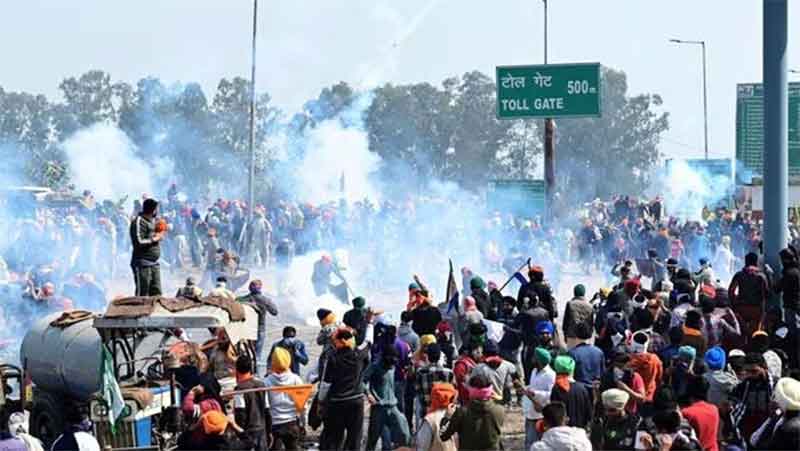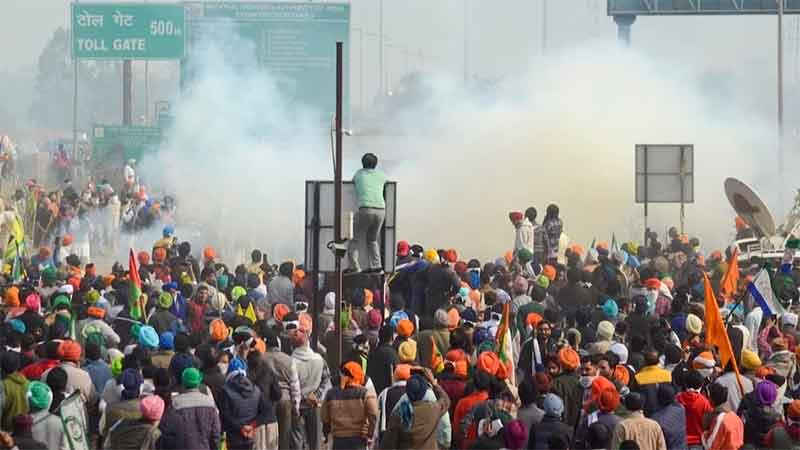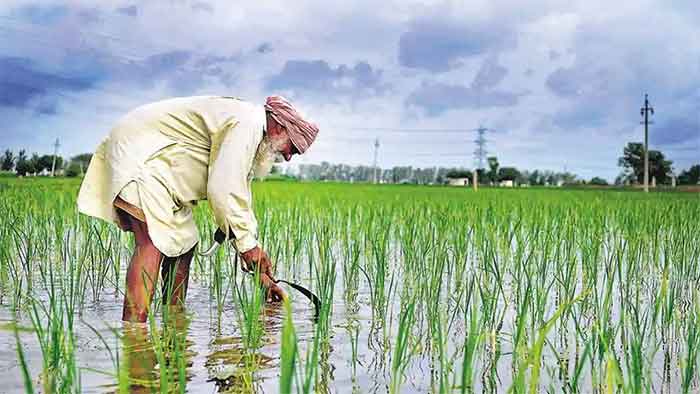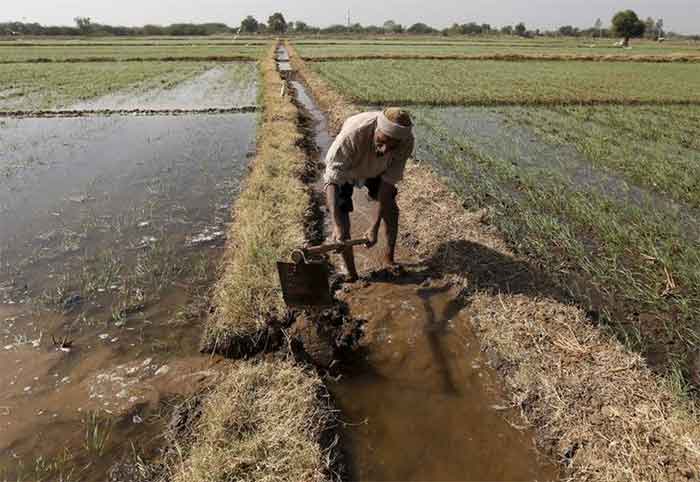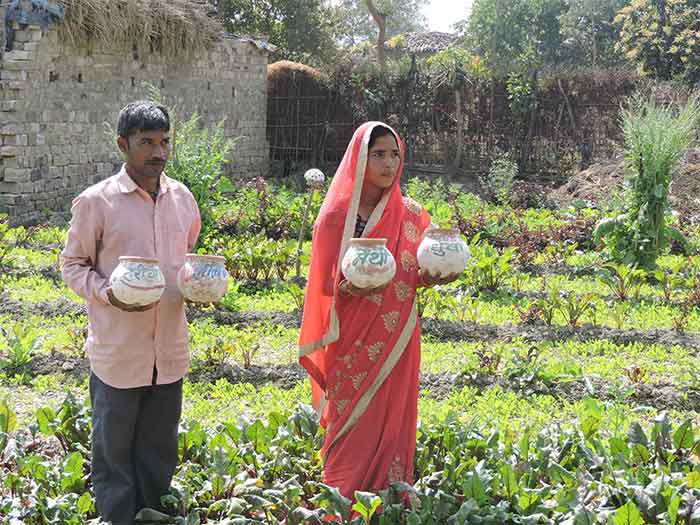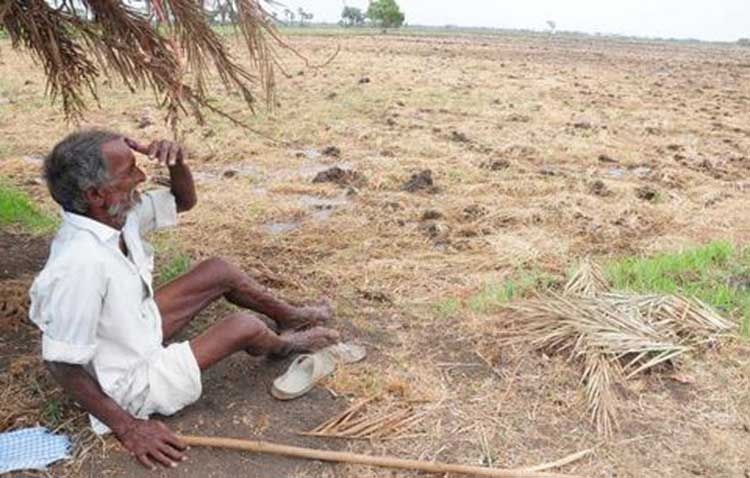
Girdhari worked as a farmer for over four decades, toiling in scorching summers and shivering winters. At the age of 62 he could no longer work and was confined more or less to his home. Savitri, who had contributed no less in the farm apart from shouldering heavy household responsibilities, had even more health problems. They now often longed for a small comfort, and more that, for a little cash to gift something to their visiting daughter and grandchildren. Deprived even of this capacity after working so hard all their life, they often felt very sad and lonely.
It is said that a main indicator of civilization values in any society is how the elders are looked after. While India has a rich tradition of concern and respect for the elderly ( even though this too has suffered in more recent times) this is not matched by official policy. Only 10 per cent of senior citizens in India have access to regular and reasonable pensions. They are mostly those who have served in the civil government, armed forces and related parts of the formal sector. For the remaining over 90 per cent of senior citizens, pensions are either non-existent or extremely inadequate.
The leading program of the union government for providing some basic relief to the elderly people in the informal sector is known as the National Social Assistance Program (NSAP). Out of the nearly 80 million elderly citizens in this informal sector, this scheme of the Union Government manages to reach just about 22 million people . In 2015-16 Rs. 8516 crore was spent on this program and in 2020-21 budget Rs. 9197 crore has been allocated for this program, which shows that the allocation has stagnated and perhaps even the impact of inflation is not covered in the allocation.
Most very needy elderly persons do not get pension, some others who used to get pension have been denied pension due to insistence on Aadhar and biometric recognition, various irregularities and other factors. Apart from this pension program some unorganized sector workers are covered by a few other schemes but the allocation of such schemes is much smaller compared to NSAP. Thus around 60 million elderly people are still waiting to get any pension.
Among various sections small farmers in particular are very badly served by pensions. After toiling all their life in fields to meet the most basic need of the country , the annadata is more or less left to her or his own fate in old age by the government, as very few of the small farmers who have toiled all their life in fields are provided any pension by the government.
The NSAP distinguishes between two age groups of elderly citizens—60 to 79 years and 80 years onwards. In the second age-group the Union government provides Rs. 500 per month per person. However the overwhelming majority of the elderly people are in the former age-group. For this age group the contribution of the Union government is, believe it or not, just Rs. 200 per month.
At a time when highly dubious projects worth tens of thousands of crores have been cleared recklessly and huge income raises are routinely provided to senior officials and politicians, when the number of billionaires in the country is higher than ever before, the pension offered by the union government to elderly citizens who toiled from morning to night as farmers and workers for at least four decades is just Rs. 200 per month, and this too only for about 27 per cent of senior citizens who need this.
This was fixed about a decade back and has not been changed since then despite many demands, protests and recommendations to increase this. During this period the value of this amount in present day prices has dwindled to just about Rs. 90 or so.
To this amount provided by the union government the state government generally adds a contribution of its own under this scheme. In some of the smaller states like Goa, Kerala and Delhi the state governments for a long time have been making a significant contribution so that the selected elderly citizens ( not all elderly citizens) in these few states are able to get a pension of around Rs. 2000 or so. But this has happened generally only in a few states with relatively smaller populations so that on the whole the proportion of these elderly citizens is relatively quite small at the national level.
In several states with much higher population of elderly citizens the contribution of the state government is also very small so that even after adding the state contribution the pension remains just around Rs. 500 per month. In some cases pensions started by previous state governments were cancelled after a new government assumed power.
Even these meager pensions often do not reach senior citizens in time and some of these elderly persons have to spend a lot of effort and often some money to obtain their meager pension. The system of grievance removal which exists today is very inadequate.
These and other problems relation to pensions have been highlighted repeatedly in recent years by Pension Parishad, an important social organization known for its very sincere work. The Pension Parishad has demanded a pension of Rs. 3000 per month or one half of the minimum wage rate which should be available to all senior citizens ( leaving aside only those senior citizens who are already getting a higher pension or else are still earning enough to be in the income tax paying category). This objective can be achieved if the National Social Assistance Program can get an allocation of around 1.7 per cent of GNP ( compared to 0.04 per cent which it gets today). This is a demand which should be readily accepted without any further delay. Imagine the joy and relief this will bring to millions of elderly people. Can the union government gift their millions of smiles to the nation on the first day of the new year?
Bharat Dogra is a journalist and author. His recent books include Protecting Earth for Children and Kathin Daur Mein Ummeed ( Hope in Difficult Times- Hindi Poems).
SIGN UP FOR COUNTERCURRENTS DAILY NEWSLETTER

